Iran offers its final conclusion on EU’s plan to revive JCPOA, says deal possible if US realistic
Iran says it has provided the European Union with its final conclusion on the talks aimed at reviving the 2015 nuclear agreement, known as the Joint Comprehensive Plan of Action (JCPOA), and it is now the US’ turn to show realism and flexibility if it really wants a final agreement to be reached.
Earlier on Monday, Foreign Minister Hossein Amir-Abdollahian said Tehran would offer its final conclusion on the JCPOA revival talks by midnight local time.
“We will relay our final conclusion on the outstanding issues to the EU coordinator in writing by midnight today to see what feedback it will have and what reaction the US will show,” he said.
Iran’s top diplomat added that if the US shows a realistic and flexible reaction to Iran’s offer, “we would be at the point of agreement,” adding, “The American side has orally agreed to two proposals offered by Iran.”
“However, the US ... wants to get more concessions [from Iran] and does not show flexibility. We must talk more and those parties that are trying to get our positions closer should [try to] get the Americans closer to our logical viewpoints,” Amir-Abdollahian said.
He added that it is the US turn to show flexibility due to its internal problems, saying that Washington's oral acceptance of the two Iranian offers "must turn into a text and it must show flexibility on one issue."
"The upcoming days are important days," the Iranian foreign minister emphasized, saying Tehran is ready to reach a conclusion through a foreign ministerial meeting and announce the final agreement if its view are accepted.
"It is the country's decision that if our red lines are respected, we will have no problem with reaching an agreement. One of the reasons for the prolongation [of the JCPOA revival talks] is that we don't want to cross [our] red lines," he pointed out.
The United States only seeks to solve its own problems "but we do not want to finalize an agreement and then see that our red lines have not been observed. Something [good] must happen in the [Iranian] people's lives [through any possible agreement]."
Four days of Vienna talks between representatives of Iran and the five remaining parties to the JCPOA to salvage the deal culminated on August 8 with a modified text on the table.
The Vienna talks had resumed on August 4 after several months of impasse, and expert-level negotiations were held between Iran and the P4+1 group of countries.
While the European Union foreign policy chief Josep Borrell claimed the “final text” had been reached, Iran emphasized it has conveyed its “initial response and reservations” on the draft text.
Elsewhere in his remarks, Amir-Abdollahian said the country was determined "not to tie the Vienna negotiations to people's livelihood, so we did not want to present an emotional agenda to the country; we wanted to show the real negotiations to the people."
The JCPOA is the outcome of months of efforts by Iran's Foreign Ministry which "can also have many flaws as a document but what concerns us is verification which must be conducted," Amir-Abdollahian said.
Iran and the remaining parties to the JCPOA -- Russia, China, France, Britain, and Germany -- started talks in the Austrian capital of Vienna in April last year. While the parties noted progress in multiple rounds of talks, the indecisiveness shown by Washington has prevented any significant breakthrough.
Last month, the negotiations were hosted in the Qatari capital of Doha in a different format, with Tehran and Washington holding indirect talks mediated by the European Union. Those talks also failed to produce any tangible result due to the excessive demands of the US.
Iran's President Ebrahim Raeisi said on Friday that the Islamic Republic would neither leave the negotiating table with the P4+1 group of countries on the JCPOA revival nor tie its progress to the accord.
"We will seriously address Iran’s economic and cultural circumstances regardless of the path the [JCPOA revival] negotiations take and what will happen in the future," Raeisi said in the southeastern Iranian province of Kerman.
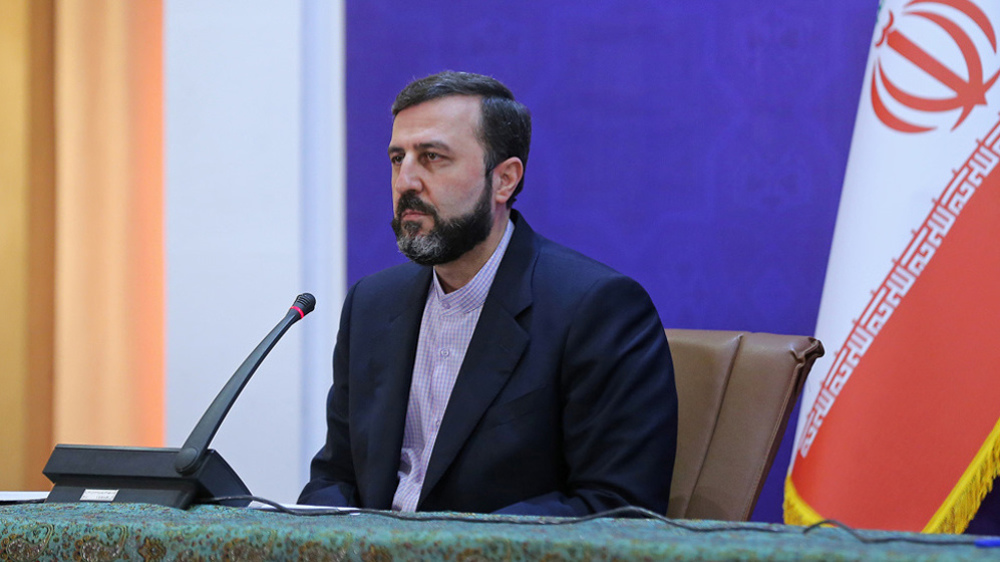
Uranium enrichment is Iran’s ‘red line’ in talks with US, says deputy foreign minister
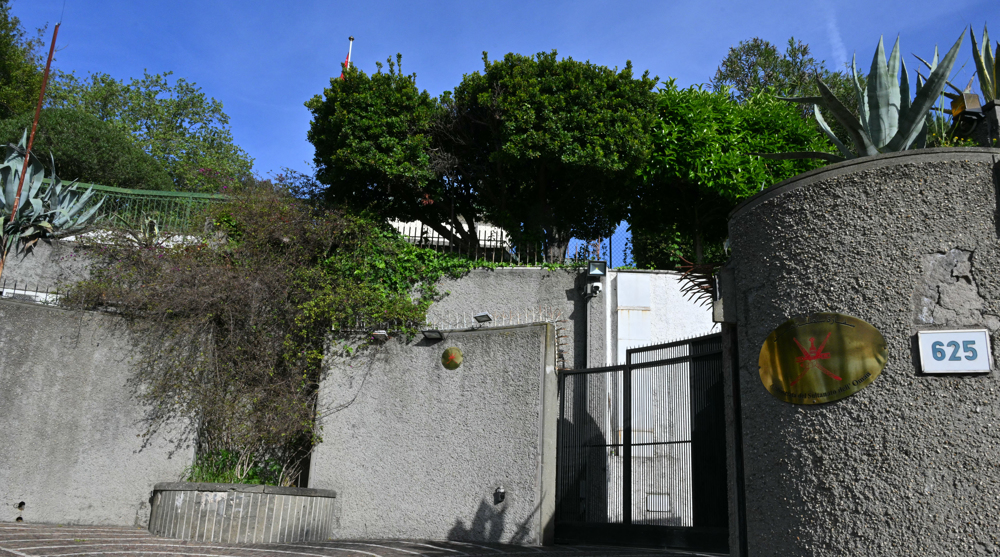
Iran insists on sanctions removal, nation's rights in talks with US
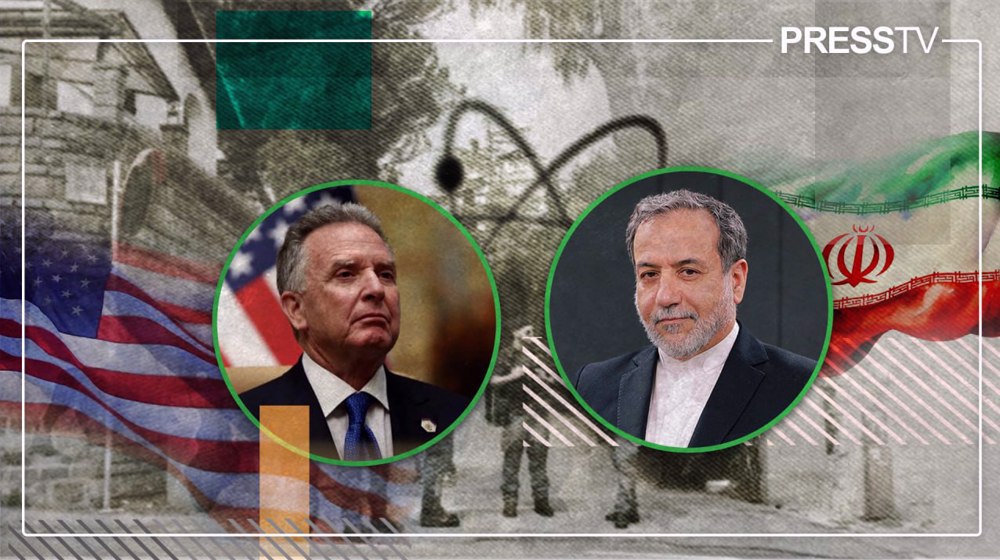
Iran-US indirect talks gain momentum amid ‘constructive atmosphere’ in Rome
US airstrike on Yemeni capital kills at least 12 civilians
VIDEO | Yemeni air defenses shoot down another US MQ-9 drone over Sana’a
VIDEO | Press TV's news headlines
VIDEO | Gaza Million March in Islamabad condemns US-backed Israeli aggression
Red Crescent rejects Israeli military report on killing of Gaza medics
Yemen sanctions 15 US weapons manufacturing companies
Israeli military claims Gaza medics were killed mistakenly
Iran to expand off-grid solar to all government buildings


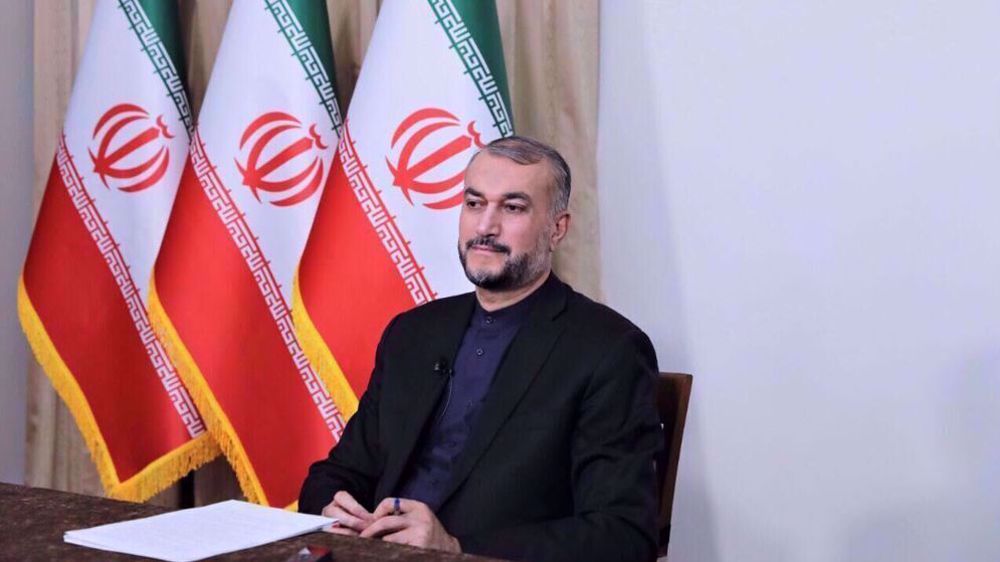
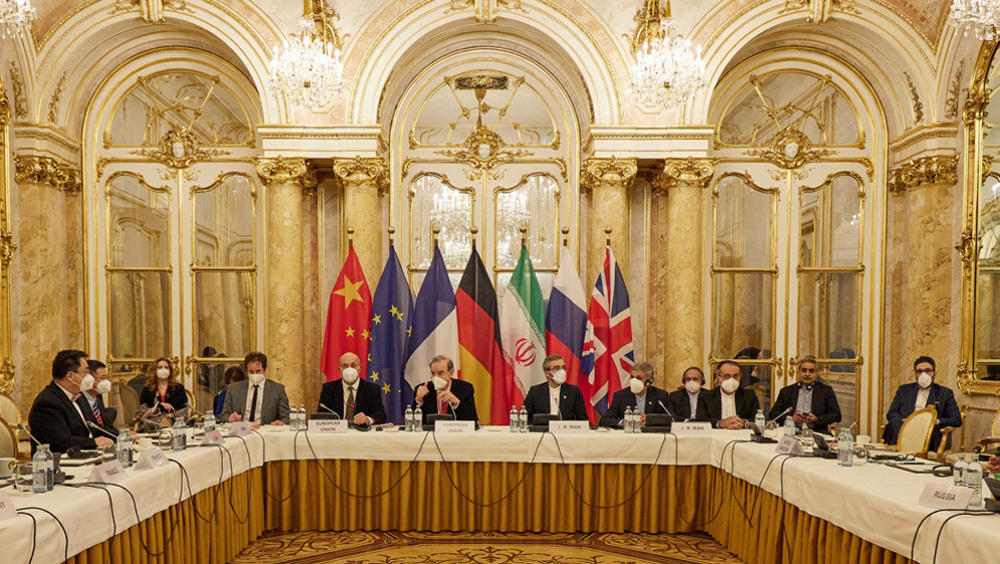
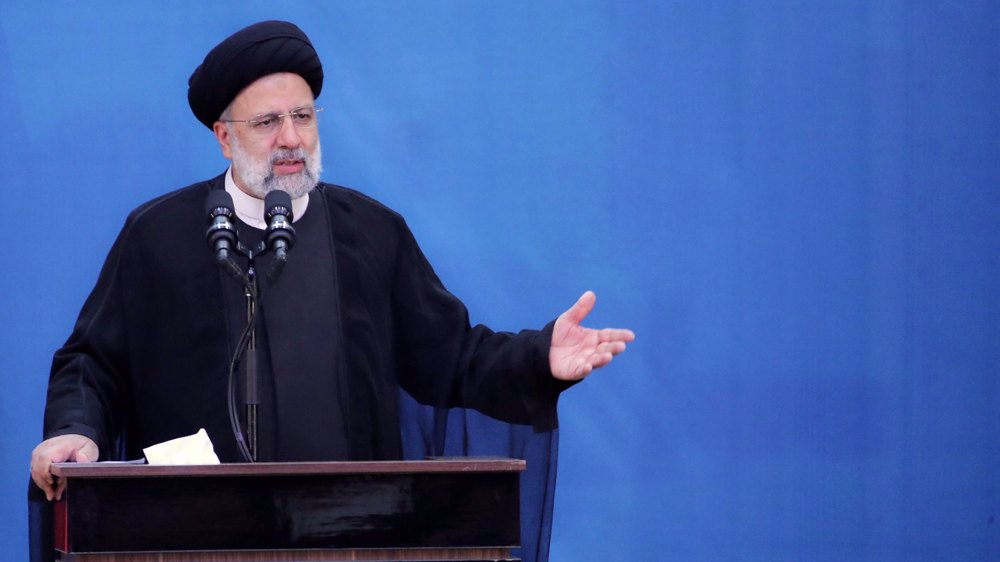




 This makes it easy to access the Press TV website
This makes it easy to access the Press TV website